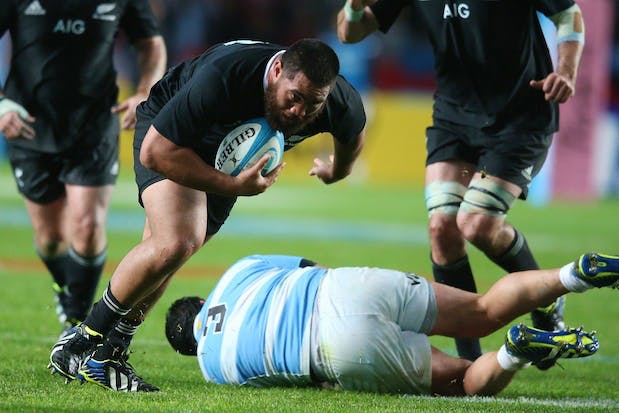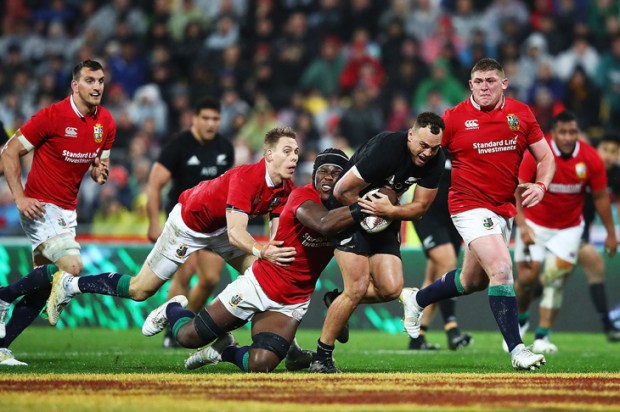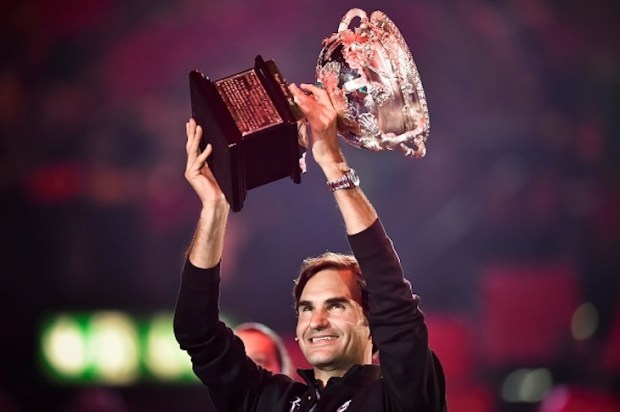This weekend is the final round of the southern hemisphere’s Rugby Championship, the best tournament outside the World Cup and wildly better than the Six Nations. The most eye-catching fixture is South Africa v. The All Blacks in Jo’burg, but the more important fixture for British Isles rugby is the 11.40 p.m. kick-off in Rosario. If Argentina beat Australia — and they only lost by a point in Perth — then the Wallabies will finish bottom of the table.
For all our crowing about the Lions in the summer, it might be that the cream of the British Isles squeaked past the worst side in the southern hemisphere 2-1. So when the Heineken Cup starts the next weekend and we rave about the quality on show, it is worth considering the gulf between an All Black and, say, Owen Farrell. Wales might have a ‘golden generation’ and England might be ‘heading in the right direction’, but it seems fairly obvious what the natural order of things is and will continue to be.
Talking of the Heineken Cup, though, you have to wonder quite why the French and English administrators are so determined to bugger up the one thing that is undeniably popular in rugby. Attendance figures for last year were higher than ever and it is a fabulously exciting competition. If you like that sort of thing, and I do, you can lose an entire weekend watching match after match. Not so good for married life, maybe.
So this is the beef: the Welsh and the Irish are guaranteed three or four spots each, and the Scots and Italians always get a couple, and maybe that is unfair, but France and England still get more than half of the spaces in the competition. English and French clubs argue that because they are sure of qualification, the Celts can rest players from league matches so they are fresher for the Heineken Cup, which I suppose has some merit, but increasing the number of English and French clubs or further reducing the Celts seems unfair too. Also, if the Welsh teams are meant to be so much fresher, why do they keep on underperforming?
The proposal from the big boys, if you’re still following me, is that only six teams are allowed from the Celtic league, which in the past two seasons would have meant only one Scottish team, no Italians, and no Cardiff (the only Welsh side ever to reach the final). There’s got to be something blatantly inequitable about a system that can cut out any Scottish or Italian representation at all.
More unfair than Heineken Cup distribution is that France (especially) and England get to poach the best talent from the Celtic nations. No wonder Wales can’t sustain more than four regional sides if all their best players are overseas. Increasingly that’s the case for Ireland too. I’d say England and France have it pretty damn good already. The Heineken Cup isn’t broken, so don’t mess with it.
Even though it is a week since those thrilling scenes on the water in San Francisco Bay, it would seem churlish not to pay suitable homage to the amazing achievements of Sir Ben Ainslie on Oracle Team USA in the America’s Cup. Ainslie, said the New York Times, is ‘widely regarded as the best sailor in the world’. Which is the sort of thing you would quite like to put on your business card. He’s already got his ‘K’, so what’s next to honour this outstanding sportsman? A peerage? The Order of Merit? A seat in the Cabinet? Now you’re talking. Ainslie never knows when he’s beaten, which is why I’d love to see him run something. No one in their right mind would bet against him fielding a British boat in the cup, and winning it for his homeland. Apart from that, his remaining ambition is to be a star in a reasonably priced car on Top Gear. That is something I really would pay to watch.
Got something to add? Join the discussion and comment below.
Get 10 issues for just $10
Subscribe to The Spectator Australia today for the next 10 magazine issues, plus full online access, for just $10.















Comments
Don't miss out
Join the conversation with other Spectator Australia readers. Subscribe to leave a comment.
SUBSCRIBEAlready a subscriber? Log in